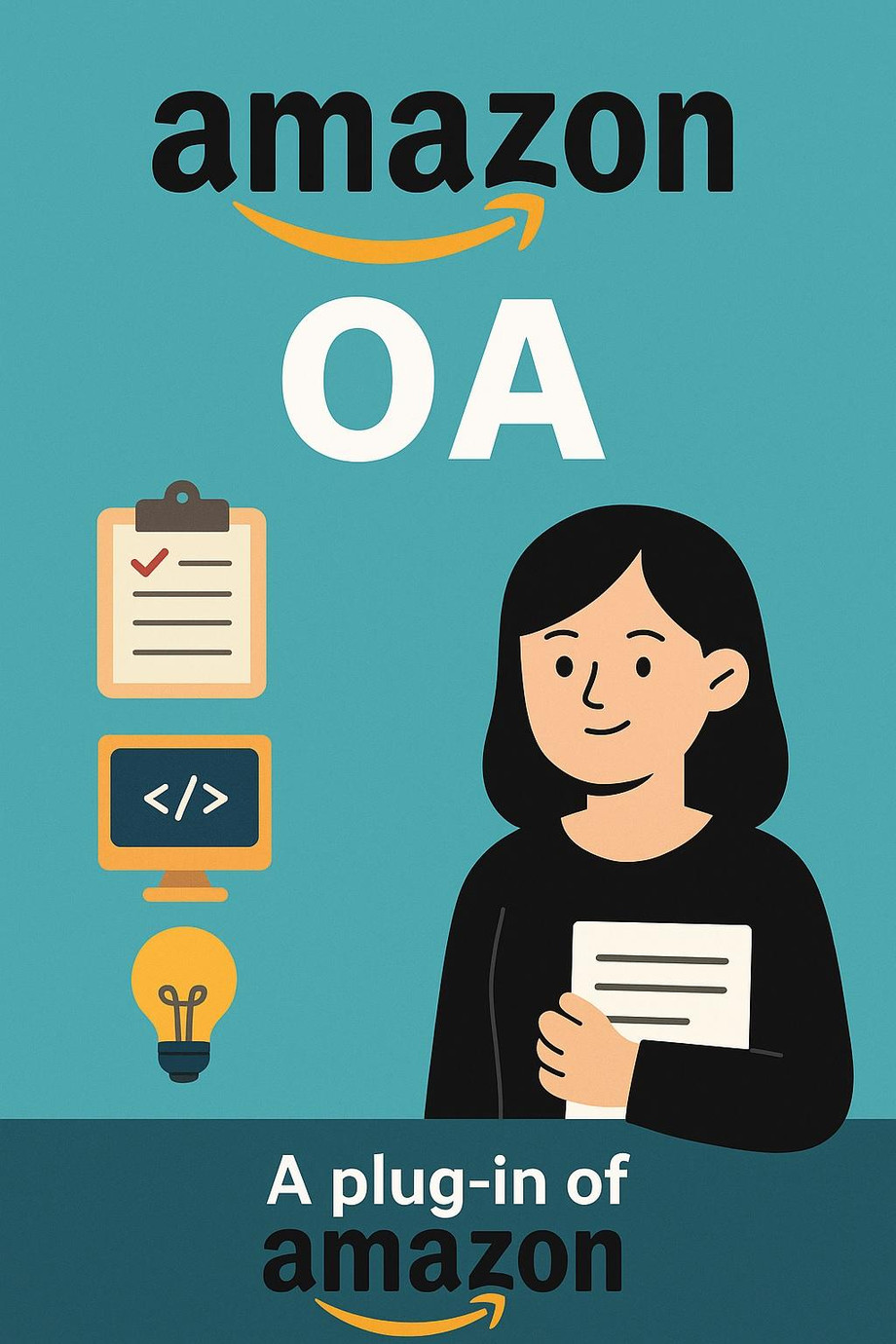How to Crack the Amazon OA: 2025 Preparation Guide for Tech Candidates

Whether you're applying for an internship, new graduate role, or experienced position at Amazon, one of the biggest hurdles you’ll face is the Amazon OA—short for Online Assessment. This screening process is designed to evaluate your problem-solving abilities, technical expertise, and alignment with Amazon’s leadership principles.
The amazon oa has become one of the most widely administered assessments in the tech industry, and it’s constantly evolving. In this guide, we’ll break down its components, highlight common question types, and share effective strategies for scoring high and progressing to the next interview rounds.
Understanding the Amazon OA Format
The amazon oa varies slightly depending on your role (e.g., SDE Intern, SDE I, SDE II), but the general format consists of the following sections:
1. Coding Challenges
-
Platform: HackerRank or CodeSignal
-
Questions: 2–3 algorithmic problems
-
Difficulty: Medium to Hard
-
Topics: Arrays, strings, graphs, hash maps, recursion
2. Work Simulation (for non-tech and hybrid roles)
-
Scenario-based assessments that evaluate decision-making aligned with Amazon’s leadership principles
-
Includes chat logs, email prioritization, and customer handling simulations
3. Logical Reasoning or Debugging (in some versions)
-
Identify bugs in existing code
-
Answer logic-based questions under time constraints
Time Limit: 90 to 120 minutes (total)
The assessments are typically proctored and scored automatically, making your performance measurable in a standardized way.
What Makes the Amazon OA Unique?
Amazon’s OA isn't just about solving a problem—it’s about how you approach it. The company values practical decision-making, time efficiency, and the ability to scale solutions. The amazon oa is crafted to reflect real-world tech challenges, especially for high-stakes roles that demand scalable, resilient systems.
Here’s what Amazon looks for:
-
Accuracy – Did you solve the problem completely and correctly?
-
Efficiency – Is your solution optimized for time and space?
-
Code Quality – Is your code clean, modular, and readable?
-
Leadership Fit – For simulations, did your choices reflect Amazon’s values?
Common Coding Patterns to Master for the Amazon OA
From reviewing hundreds of previous assessments and candidate feedback, we’ve identified recurring question types in the amazon oa:
Array and String Manipulation
-
Sliding window
-
Two-pointer technique
-
Palindrome validation
-
Subarray sums
Hash Maps and Sets
-
Frequency counts
-
Duplicate detection
-
Longest substring without repeating characters
Graphs and Trees
-
BFS/DFS traversal
-
Cycle detection
-
Connected components
Dynamic Programming
-
Memoization
-
Tabulation
-
Fibonacci variations
Greedy Algorithms
-
Job scheduling
-
Optimal resource allocation
-
Profit maximization
Real Example (Inspired by Amazon OA)
Problem: You are given a list of delivery routes with start and end times. Return the maximum number of non-overlapping deliveries that can be completed.
This is a variation of the classic interval scheduling problem—commonly found in amazon oa challenges. The optimal approach usually involves sorting and applying a greedy strategy.
How to Prepare for the Amazon OA
Step 1: Practice on Real Platforms
Use LeetCode, HackerRank, and ProgramHelp.net to:
-
Practice timed assessments
-
Filter by Amazon-tagged problems
-
Explore question walkthroughs with solution explanations
Step 2: Review Leadership Principles
Amazon’s 16 Leadership Principles appear not only in behavioral interviews but also in the amazon oa work simulations. Learn how to:
-
Prioritize customers
-
Demonstrate ownership
-
Show bias for action
-
Insist on high standards
Step 3: Take Mock Assessments
Simulate real test conditions:
-
90-minute timer
-
No IDE help
-
No internet searching
-
Review after completion
What to Avoid in the Amazon OA
-
Ignoring edge cases – Null inputs, duplicates, long inputs
-
Writing brute-force solutions – Focus on O(n) or O(log n) where possible
-
Skipping readability – Use clear variable names and comments
-
Overcomplicating logic – Simple, clean logic often scores better
-
Guessing in simulations – Understand the context before choosing an answer
What Happens After You Complete the OA?
If you pass the amazon oa, here’s what typically follows:
-
Recruiter Contact – Usually within 5–10 business days
-
Technical Phone Interviews – 1 to 2 rounds for SDE roles
-
Onsite/Virtual Interviews – Includes system design, problem-solving, and behavioral questions
-
Team Matching (for interns and new grads)
-
Final Decision – Offer or rejection, usually within 2–3 weeks
Why Use ProgramHelp.net for Amazon OA Prep?
ProgramHelp.net is your go-to resource for up-to-date and realistic Amazon OA preparation.
Here’s what you’ll find:
-
Real questions from past candidates
-
Detailed code walkthroughs
-
Work simulation examples
-
Updated guides for OA 2025
-
Ethical prep strategies that work
Rather than spending hours searching forums, ProgramHelp gives you focused, actionable prep that aligns with Amazon’s expectations.
Final Thoughts on the Amazon OA
The amazon oa isn’t just a coding test—it’s your gateway into one of the most innovative companies in the world. To succeed, you need more than coding skills; you need speed, strategy, and strong alignment with Amazon’s values.
-
Practice consistently
-
Learn patterns and problem types
-
Study leadership principles
-
Stay calm and confident
Start preparing now at ProgramHelp.net and take the first real step toward joining Amazon.
- Art
- Causes
- Crafts
- Dance
- Drinks
- Film
- Fitness
- Food
- Spiele
- Gardening
- Health
- Home
- Literature
- Music
- Networking
- Other
- Party
- Religion
- Shopping
- Sports
- Theater
- Wellness


